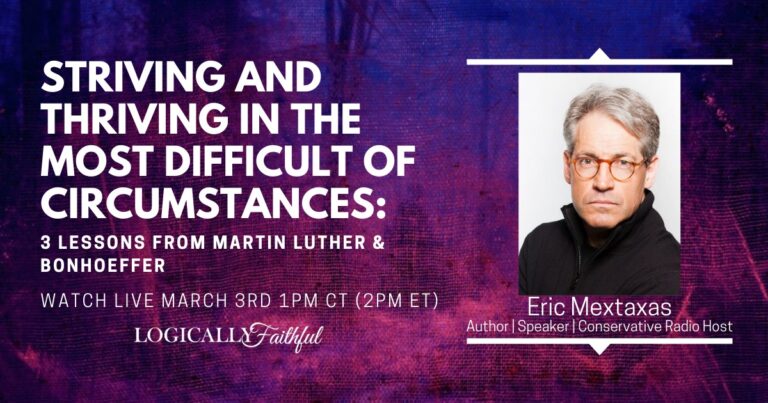“Life is a stage and we are all the actors.” So said William Shakespeare. It was the first day of school, I was terrified. Then 20 years later, the first day on the job as a teacher, I was terrified again —but for a different reason. That is when something I will never forget happened . . .Something that changed my career, something that changed my life.
The very first day, I thought I knew my material, but the reality was that I did not know how to teach. So I faked it. Yes I faked it. That is when that interesting something happened.
There is also in academic circles what is called the Imposter syndrome . Did you ever feel inadequate to do a job that people paid you to do? Have you ever walked into your office and said to yourself “I don’t belong here, I’m not as smart as the rest of these people?” That is how I felt, and at times still feel teaching today. If you have, you are experiencing the Impostor syndrome. It can be defined as a collection of feelings of inadequacy that persist even in face of information that indicates that the opposite is true. It is experienced internally as chronic self-doubt, and feelings of intellectual fraudulence.
It is basically feeling that you are not really a successful, competent, and smart person, that you are only imposing as such.
Some common feelings and thoughts that might characterize the impostor syndrome are: “I feel like a fake” “My classmates/professors etc. are going to find out I don’t really belong here,” “I’m a loser,” “I’m horrible,” etc.
So what can be done about it?
Well you can give in to the fears and suppress them — permanently hindering your growth and go get another drink~!
That was a sarcastic, sick joke. 🙂 However, sadly this is how many people have dealt with this.
Another option is that we pretend we are qualified by doing what qualified people do…we do the job, and do it exceedingly well! That is what I did that first day of class, and what I continue to do today. I started to teach like I remembered the great teachers did. I’m tried it, and it happened, I started to teach well.
When I am feeling inadequate and insecure, I pretend that I am adequate and secure. And lo and behold, I became what I pretended I was.
The ideal is not to put yourself in a place where you have to pretend at all! You avoid that by preparing and practicing–sometimes over and over.
Remember, the more we sweat in practice, the less we bleed in battle.
I do what successful people do, practice, even when I don’t feel like it. True maturity is about letting your feelings follow you rather than you following your feelings.
The difference between men and boys, women and girls, is that one controls their emotions and the other is controlled by them.
And when I am not feeling happy, I pretend to be happy, and something magical happens (usually) I start to feel happy.
Dennis Prager has a wonderful, short, video on this where he argues that we have a moral obligation to be happy.
So when I am down, I tell myself things that my soul needs to hear. Psalm 103 is a great example of positive self-talk from Scripture. It is telling yourself or reminding yourself truths that you are prone to forget: God is real, that he loves you that you are precious and special and that there is meaning even in the little things you do.
See this great talk from Pastor Eric Naus at Moody Memorial Church on this issue.
Some great articles to consider on the issue from Psychology Today are, “Voice of Reason” and “Why Saying Is Believing” — The Science Of Self -Talk from NPR. But let us be careful of falling into the postmodern “positive thinking trap” of creating something from thought alone. It is nonsense. Yes, there is something called self-fulfilling prophecies or what is called the The Pygmalion Effect. That is very much real and testable.
-Talk from NPR. But let us be careful of falling into the postmodern “positive thinking trap” of creating something from thought alone. It is nonsense. Yes, there is something called self-fulfilling prophecies or what is called the The Pygmalion Effect. That is very much real and testable.
But the fluffy-duffy “lets all think positively” and “lets all get along” mentally is naive and foolish. Its tantamount to sticking our head in the proverbial sand. We need to be real with what is really happening in the world, such as trafficking of human beings and terrorism that cannot be overcome by lighting a candle and humming while we eat Hershey’s hugs and kisses. 
The most popular use of this type of thinking is The Secret–which claims everything is just a product of thoughts, is riddled with logical fallacies. See these links for that: Logical Fallacy of the Secret and this great article about it from the Skeptic Magazine.
William Ian Miller wrote a book called “Faking It” its about one of the dirty little secrets of humanity: t hat we are all faking it much more than anyone would care to admit. He writes with wit and wisdom about the vain anxiety of being exposed as frauds in our professions and hypocrites to our creeds. He finds, however, that we are more than mere fools for wanting so badly to look good to ourselves and others. Sometimes, when we are faking it, our vanity leads to virtue, and we actually achieve something worthy of esteem and praise.
hat we are all faking it much more than anyone would care to admit. He writes with wit and wisdom about the vain anxiety of being exposed as frauds in our professions and hypocrites to our creeds. He finds, however, that we are more than mere fools for wanting so badly to look good to ourselves and others. Sometimes, when we are faking it, our vanity leads to virtue, and we actually achieve something worthy of esteem and praise.
For example, when you pretend you are brave, you may become brave. When you pretend to be kind, you may actually become kind! When you pretend that you know what you are doing, and pretend to learn it, you might start knowing what you are doing!
Its also about body language. It affects how others see us, but it changes how we see ourselves.
Social psychologist Amy Cuddy shows how “power posing” — standing in a posture of confidence, even when we don’t feel confident — can affect testosterone and cortisol levels in the brain, and might even have an impact on our chances for success. See this wonderfully helpful video from TEDS …
Cuddy’s personal website is here.
Let stop making excuses and start doing what God made us to do. And if you are afraid, its OK, do it anyway. The results will surprise you, they did to me.





Hello Khadoun,
Interesting topic. Indeed a positive self image and attitude will often lead to increased happiness, kindness to others and performance. With a realistic self image a bit of faking can therefore be healthy.
In a theistic context it is not as clear. Believing in a positive force (such as God) might be positive but, from a theistic point of view, we should not fake a believe in God’s existence. Ultimately, if the idea of a theistic God has a positive effect on many people’s lives and on humanity as a whole, then does it really matter that God really exist? Would a fake God not be sufficient as long as the believe in God works?
Does it really matter that God created man or man created god? Is the latter really fake? Is it not sufficient to honestly underwrite the message of Christianity and try to follow the Christian Way without as a conditio sine qua non demanding acceptance that God really exists. Why is the concept of a fake God, that improves the human condition on Earth not good enough?
I realise that a real (not fake) ultimate cause (God) is one of the bases of theism but is it not enough for God to be real to the human mind (not fake from a human point of view) without being objectively real (maybe objectively fake).
Piet
Hi Piet
You ask such an important and fundamental question! Does it matter if God really exists?
I say YES, as loud as I can! :)))
Don Cupitt (1934–) is a priest who thinks Christianity is good for the world, but false as Santa Claus or Micky Mouse. Freud thought the same. They are called “non-realists”
But it does not work for honest seekers….
CS Lewis wrote “Christianity, if false, is of no importance, and if true, of infinite importance. The only thing it cannot be is moderately important.”
If God does not exist, if Jesus is not who he said he was, then I honestly would not be following a delusion like this. I do not follow Him because it works for me, or because it gives me comfort, or because it is helpful ethically, but because I honestly believe it is true.
If it is not, then I would follow something less demanding.
Paul wrote in 1 Cor 15:” If the dead are not raised,
“Let us eat and drink,
for tomorrow we die.”
Bottom line is..
If Jesus did not rise from the dead, then lets just party and get it over with– for soon we will join the worms!!
But if he is who he said he was and did rise from the dead, He changes everything…..He did for me.
See
http://thebayviewreview.com/2012/03/24/of-course-it-matters-whether-god-exists/
Hello Khaldoun,
Thanks for your reply.
The theistic God can be defined as a logical coherent Person. The definition based on omni-attributes is objective and can be argued and defended.
If God exists, then God would see through Pascal wager. Therefore it is not reasonable for someone to follow Jesus (or any other theistic doctrine) without believing that Jesus (or His divine revealed equivalent) was who he claimed to be.
On the other hand there is no rational, universal and objective proof for God’s existence or nature (e.g. a Trinity or not). Therefore as long as someone did not have a religious experience proving to her or him beyond reasonable doubt that God exists, then it is reasonable to keep on honestly and with an open mind seeking for such experience. As such being an agnostic and still trying to follow the teachings of Jesus (on morality, ethics and compassion) is not unreasonable as part of an open-minded seeking process for the theistic truth. My experience is that the Church is broad minded enough to accept this type of “seekers” within her midst.
If one has a sceptical disposition (towards earthly truths and claims), then the road towards a religious experience to proof beyond reasonable doubt that God exist will be longer and steeper. Unfortunately “beyond reasonable doubt” cannot be expressed as “3 sigma” significance for observations for versus against the existence of God.
Well said ! Then let us just keep seeking.
Hi Piet
Can I suggest another book for your Christmas wish list— ‘Why Go To Church? The Drama Of The Eucharist by Timothy Radcliffe whom was the Master of the Dominican Order. The reason that I suggest that is like you— like me— he has never had the kind of religious experience I think that you are referring to! He says that this book has been written for people like him– like you and I— only part way through it but finding it very ‘seductive’ — potentially enlightening even!
Thanks Pauline!
You are very welcome Piet! You might also be interested some time in almost anything by James Alison, and a book called The Contagion of Jesus by Sebatian Moore! Again they tend not to deal in philosophical arguments for the existence of God but they do present pictures of a God without violence, supported by scriptural references, and one worthy of worship! They both use the concept of ‘mimetic desire’ associated with Renee Girard to formulate their theories– perceptions– and in my opinion are very well worth reading in this search you and I are both engaged in I think!
If you lived nearer I would lend them to you!
Thanks Pauline and all,
My Christmas book list is getting longer and longer.
Our search is not fully identical.
I am still trying to convince myself that, even if the objective truth and the ultimate cause of reality exists, such objective truth might be “knowable” to humanity. In my opinion humanity’s scientific truth is subjective to the observational and cognitive capabilities of our species and at the very most of an objective nature in our universe but certainly not in the entire reality. The religious truth with respect to God as the ultimate cause of all realities has to be per definition objective in all Reality. My enigma is how can humanity, who can only subjectively observe and reason, ever know God, the ultimate cause of Reality, objectively. Admittedly the theistic God will reveal himself but can we objectively understand such revelation. In my mind religious experience is a mere subjective personal experience and interpretation of a objective revelation. My search as such is to understand how religious experience can possibly lead to objective truths and ultimately the ultimate cause, God (if God exists). The theistic God, if God exists, grants humankind the freedom to misinterpret his revelation.
As Feynman famously alluded to
“If reality is an onion, he and science is content with peeling of the next layer”
On the other hand religion’s purpose is to objectively know the core of the onion.
Aspiring to objectively know the core of the onion is a tough call considering our subjective senses and limited cognitive abilities.
I am obviously going around in circles and merely involved in futile logical procrastinations. The way out is probably stepping back and read books of wiser and more erudite people (without giving up my critical and skeptical attitude).
I shall now close my input on this specific topic, because I have already repeated myself too often.
Thanks all for your input!
You said here K that were you not convinced that Jesus is not whom he said he was ‘you would follow something less demanding’! That had he not risen from the dead we might as well just party and get it over with— but why? Surely if what he taught was intrinsically good— and presumably you do believe that for you would not, I think, attempt to abide my teachings solely on the basis of their presumed source if they contradicted your innate sense of what constitutes goodness, then why would you not attempt to put them into practice whatever your beliefs about their source?
Hi K
I am puzzled! If, as Franks argues here, ‘salvation’ is entirely dependant upon right relationship with God, and that in turn is entirely dependant upon right belief, does that still not make ‘salvation’ dependant upon our actions rather than grace— the action of believing that Jesus was whom he said he was?
You might well argue that belief is not an action inasmuch as an action is something we choose to do—whereas our beliefs provide the context within which actions occur, and are not something we have any agency over other than to use our rational faculties in an attempt to assess the validity of our beliefs— but if beliefs are not actions, and moreover our agency over our beliefs is severely constrained at best, does it not strike you as somewhat inconsistent that the God you see reflected in Christ would use ‘right belief’ as the sole determinant of salvation?
Pauline,
It is not my belief in Christ that saves me, rather it is Christ himself that saves me. And I believe that he does, and is the only one who can. I trust his grace to all the world and for him to rightly judge who is and who is not saved. He told us that if we believed or trusted him, he would save us. That is what the doctrine of Faith Alone means. So we tell others to trust him too. He is the one who saves, not us. That is the basis of evangelism worldwide. There is much more to say about this, but I will guide you to better people than I to address this.
J. Gresham Machen address this in his 1925 book
What Is Faith?
http://www.wtsbooks.com/what-is-faith-gresham-machen-9780851515946?utm_source=irishcalvinist&utm_medium=irishcalvinist’
“The true reason why faith is given such an exclusive place by the New Testament, so far as the attainment of salvation is concerned, over against love and over against everything else in man . . . is that faith means receiving something, not doing something or even being something. To say, therefore, that our faith saves us means that we do not save ourselves even in slightest measure, but that God saves us.”
Also check out this talk by R.C. Sproll on this profound issue
http://www.sovereigngracestore.com/Product/A2235-06-51/The_Center_of_Christian_Preaching_Justification_by_Faith_MP3_DOWNLOAD.aspx
I suspect that you are referring to the doctrine of irresistible grace here K— albeit I would be delighted if you told me I was wrong!
Cards on the table time though if I am right!! I don’t think either of us is in a position — or that anyone else is come to that — to know the truth or falsity of that doctrine– what I do know though is that I cannot live in this existence ,looking into the eyes of my neighbours whom I have been commanded to love, believing that those whom have not been ‘graced’ by Gods saving action are condemned to— well whatever—!!
Perhaps we should stop now?
Pingback: The Danger of Reading the Bible: How to revitalize your devotions | Logically Faithful
that ted talk video of the lady was shown to me by a previous professor of mine and it spoke volumes to me because at the time i was struggling in the course! i have a few questions about the imposter syndrome though, is it nerves that causes someone to have imposgter syndrome or is it that they truly feel that they do not belong? in my case i feel that i did not belong because i was the only minority in my class, but knew that i was more than qualified, does that fall under imposter syndrome? also, are there instances where you cannot fake it until you make it?